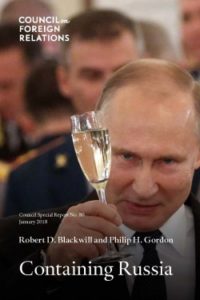 French President Emmanuel Macron on Friday met the head of Russia’s oldest rights group as well as the widow of Alexander Solzhenitsyn, the Nobel literature laureate and prominent dissident of the Soviet era, Reuters reports:
French President Emmanuel Macron on Friday met the head of Russia’s oldest rights group as well as the widow of Alexander Solzhenitsyn, the Nobel literature laureate and prominent dissident of the Soviet era, Reuters reports:
Facing calls at home to send a signal on human rights and democratic values to the Russian leader during his visit, Macron posted pictures on Thursday night of his meeting with the head of the Memorial rights group, Alexander Cherkasov.
 As the first non-governmental organization registered in the Soviet Union, Memorial is a symbol of the fight for democracy and human rights in Russia. It is now one of hundreds of NGOs under scrutiny for receiving funding from abroad and involvement in what is loosely defined as “political activities.”
As the first non-governmental organization registered in the Soviet Union, Memorial is a symbol of the fight for democracy and human rights in Russia. It is now one of hundreds of NGOs under scrutiny for receiving funding from abroad and involvement in what is loosely defined as “political activities.”
“Memorial is really the symbol of a democratic Russia that is brutalised by the authorities. Macron can show that Russia, for him, is not only its leaders but also its civil society,” said French philosopher Michel Eltchaninoff.
 The visit came as independent researchers confirmed that a Russian missile (HT: FDD) was to blame for the downing of flight MH16. The Netherlands said it and Australia will seek to hold Moscow criminally liable for a missile attack that downed a Malaysia Airlines flight (HT:CFR over Ukraine in 2014. A Dutch-led international probe determined the missile was fired by a Russian military brigade, RFE/RL adds.
The visit came as independent researchers confirmed that a Russian missile (HT: FDD) was to blame for the downing of flight MH16. The Netherlands said it and Australia will seek to hold Moscow criminally liable for a missile attack that downed a Malaysia Airlines flight (HT:CFR over Ukraine in 2014. A Dutch-led international probe determined the missile was fired by a Russian military brigade, RFE/RL adds.
“It is time for Russia to acknowledge its role in the shooting down of MH-17 and to cease its callous disinformation campaign,” U.S. State Department spokeswoman Heather Nauert said in a statement that blamed Russian aggression in Ukraine for more than 10,300 deaths.
The roots of Russian aggression lay in neither NATO enlargement nor ‘hawkish’ US foreign policy, but in Russian revanchism, Brookings analyst Jamie Kirchick writes for the National Review. Insightful weekend reading from a former Penn Kemble fellow at the National Endowment for Democracy.
In a culture that admires strength, the president’s muscular style of nationalism resonates, Bloomberg’s Henry Meyer adds. In power longer than any Soviet leader other than dictator Joseph Stalin, he’s come to symbolize a concept of managed democracy and conservative values that compete with liberal ones.

Economist
Despite Vladimir Putin’s web of influence in the nation, Stanford University’s Michael McFaul said he is hopeful that the oligarchy will eventually fall, CNN reports.
“Well I’m pessimistic in the short run, incredibly optimistic in the long run,” McFaul said. “In the short run Putinism as a political system, I think, is pretty sophisticated. It’s not a crude dictatorship; it works effectively and he’s squashed the opposition, he’s crushed them.”
“I don’t see a scenario under which while Putin is there that system falls apart,” McFaul said. However, he noted that “one thing political scientists we know is that charismatic dictators or autocrats, their regimes do not long last as long as a one party systems. And Putin is most certainly that. And so I think after him that system falls apart pretty quickly.”
“I think change will happen and I think it’ll be in a more pro-Western democratic way. I just don’t know when that long run begins,” he said.







